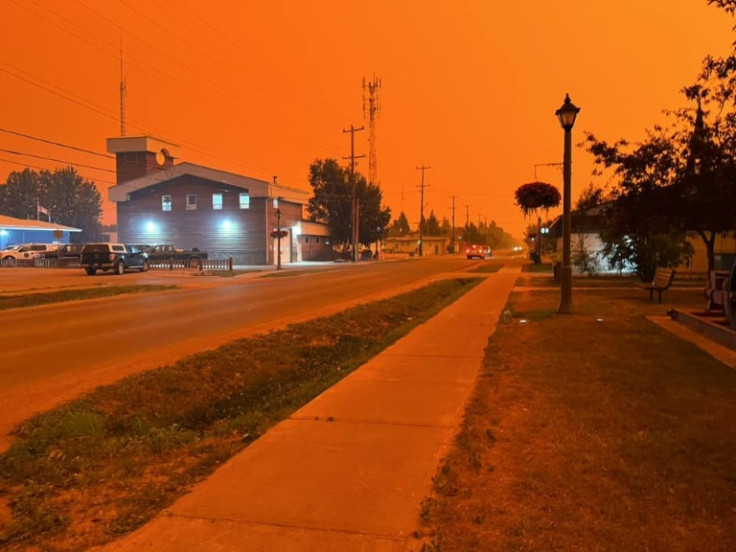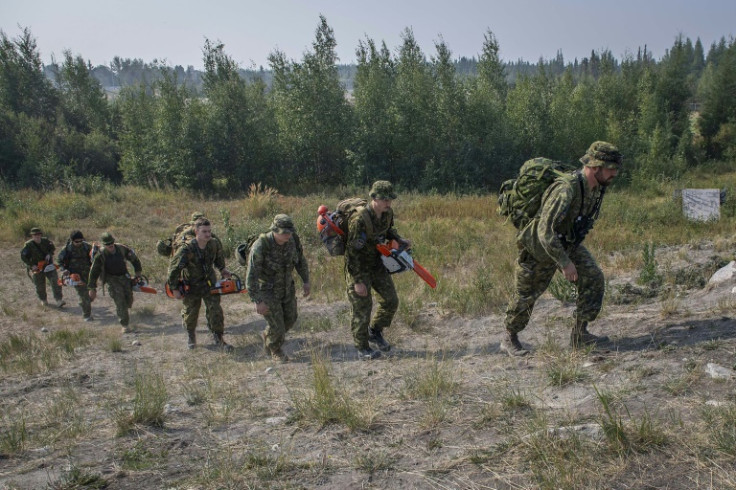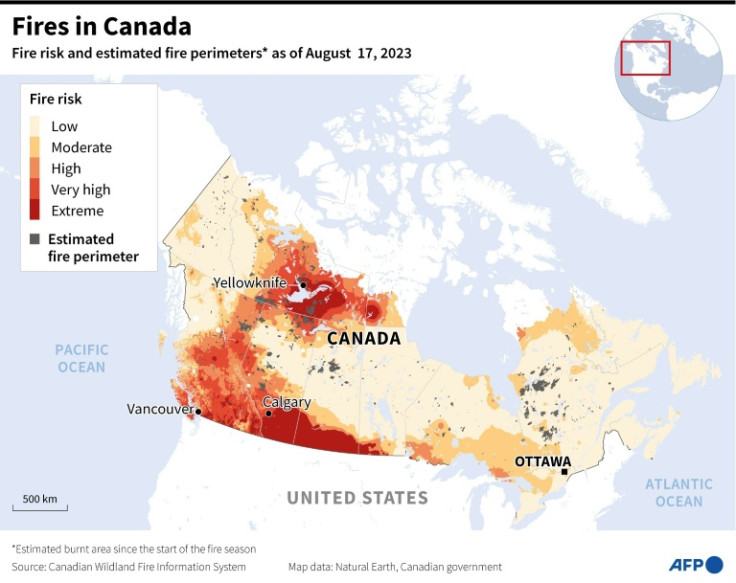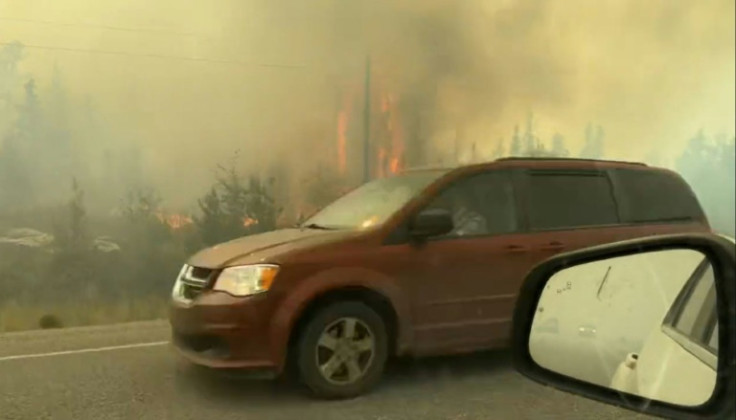Thousands flee wildfires in Canada's far north
Thousands ordered to flee wildfires advancing on one of the largest cities in Canada's far north started leaving on emergency evacuation flights Thursday.

Thousands ordered to flee wildfires advancing on one of the largest cities in Canada's far north started leaving on emergency evacuation flights Thursday, as convoys snaked south to safety on the only open highway.
The order late Wednesday to evacuate Yellowknife in the Northwest Territories marked the latest chapter of a terrible summer for wildfires in Canada, with tens of thousands of people forced to leave their homes and vast swaths of land scorched.
Tiffany Champagne was one of many who crammed into the airport in Yellowknife awaiting flights -- the first departing at 1:00 pm (1900 GMT).
"I have asthma and the wildfire smoke was making it increasingly difficult to do anything," Champagne, wearing a face mask, told public broadcaster CBC. "I'm just kind of mentally checked out at this point."
As of Thursday, more than 1,000 wildfires were burning in Canada, including about 230 in the Northwest Territories.
More than 20,000 residents of Yellowknife, the regional capital, have been given until noon Friday to leave.
"We're all tired of the word unprecedented, yet there is no other way to describe this situation in the Northwest Territories," regional premier Caroline Cochrane said on X, the platform formerly known as Twitter.

Yellowknife Mayor Rebecca Alty warned drivers being led out in kilometers-long convoys that the flames were skirting the edges of highways and they would encounter limited visibility as thick smoke turned the sky orange.
NW Territories environment minister Shane Thompson had warned late Wednesday: "Without rain, it is possible (the fire) will reach the city outskirts by the weekend."
"Very tough days ahead," the local fire service said on Thursday.

Crews scrambled to erect fire barriers as one blaze got to within 16 kilometers (9 miles) of Yellowknife. Water bombers were seen flying low over the city, and swooping in to fill up at a nearby lake.
Resident Sylvia Webster said "a lot of trees were cut down and sprinkler lines were set up around the city" to bolster its defenses.
"We might still lose everything, but that's okay," she told AFP. "As long as our loved ones are safe, we can move on from there."
Prime Minister Justin Trudeau interrupted his summer vacation Thursday to convene an incident response group.
Several military aircraft have already been dispatched, along with more than 120 soldiers to help beat back the flames.

Yellowknife declared an emergency earlier this week, and that was soon expanded across the huge northern territory as strong winds stoked the flames.
Several towns and Indigenous communities were already under evacuation orders.
In what had already been declared the Northwest Territories' largest-ever evacuation, the emptying of Yellowknife now means half the population of the near-Arctic territory will soon be displaced.
On Monday, the Canadian military started airlifting residents of smaller far-flung communities in the region to safety after roads were engulfed in flames.

For many, it was the second time in recent months that residents were forced to evacuate.
Images shared on social media and on Canadian television showed large swaths of blackened forests. Evacuees reported seeing abandoned vehicles and burned carcasses of wildlife, including bears, on roadsides.
Cars and trucks arrived at evacuation centers in Alberta -- at least 1,150 kilometers away -- with melted headlights and peeling paint.
Nadia Byrne, 24, considered turning back but worried she might run out of gas and become stranded.
"I don't really know where to go... Everyone's just kind of scrambling right now," she told AFP.
Evacuee Julie Downes, reached by telephone, described big plumes of smoke along a "gridlocked highway."
"It's scary to say but myself and other northerners are now climate change refugees," she said.
Scientists say human-caused global warming is exacerbating natural hazards, making them both more frequent and more deadly.

The evacuation of Yellowknife is the second time a Canadian city has been cleared due to wildfires since 100,000 residents of Fort McMurray in Alberta's oil and gas producing heartland were forced out in 2016.
More than 2,000 homes and businesses were destroyed in that blaze.
Earlier this year, suburbs of Halifax on the Atlantic coast were also evacuated.
Fires this season have spread across Canada with remarkable intensity, scorching 13.7 million hectares (33.9 million acres), according to the Canadian Interagency Forest Fire Centre. Four people have died so far.
© Copyright AFP 2025. All rights reserved.





















